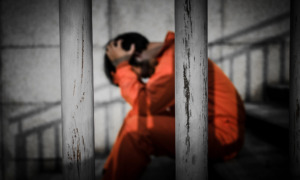Project Assistant
|
|
| Amanda Gilman |
Mayor’s Office
San Bernardino, Calif.
(909) 384-5133
http://www.ci.san-bernardino.ca.us (see link to Operation Phoenix)
Age: 24
Salary: $0. Gilman’s job fulfills an internship requirement for her Master’s in Social Work (MSW) degree from Loma Linda University. Although she receives no pay from the mayor’s office, federal work/study funds pay her $13/hour for a 20-hour week.
My Job: Gilman works on two projects within the mayor’s office. The first, Operation Phoenix (OP), is a collaboration among the city and county of San Bernardino and community-based agencies to reduce crime and provide violence prevention programs – including recreation, after-school and gang diversion programs for youth.
The second project is a collaboration between the city and county to assess the overall functioning of the juvenile delinquency court. The goal is to ensure that the court system is effective, both in keeping the community safe and in fulfilling its mission as a rehabilitative process for youth.
My Projects: “With Operation Phoenix, I serve as a liaison between the mayor’s office and OP partners. This involves attending meetings, visiting service delivery sites and spreading the word about OP,” Gilman said.
“I serve as the project manager for the juvenile delinquency court assessment, working closely with the presiding judge of the juvenile court, who commissioned this project. I interview key stakeholders in the court system (including defense attorneys, prosecutors, judges and probation officers), compile data and develop recommendations to improve the court, based on the data.
“I am currently in the planning stages of Phase II, which will involve interviewing juveniles and their families to determine the areas in which the court can improve service delivery.”
How I Got Here: Gilman’s undergraduate degree in sociology had an emphasis on family and group relations.
“[During work on that degree] I became interested in working with children and adolescents while interning at an agency that provided mentoring services to incarcerated and at-risk youth, and also while volunteering as a mentor with Big Brothers Big Sisters. When I began my MSW, I knew that I wanted to work with children and adolescents in some capacity,” Gilman said.
When she landed the internship at the mayor’s office, Gilman first worked with an agency that provided school-based counseling services to low-income children and families.
“I enjoyed this … but realized that in my second year, I wanted to concentrate on social policy rather than clinical practice,” she said. “Especially of interest to me is how research can lead to policy changes for children and adolescents.”
The Best Part of My Job: “I love knowing that my job is making a difference on a large scale. Secondly, I love that I am able to combine my two passions, social policy and research, in an effort to help youth.”
The Worst Part of My Job: “I don’t have a lot of hands-on interaction with kids.”
Most Memorable Moment: During the data collection phase of Gilman’s work on the juvenile court assessment project, she sat in on a hearing “to get a feel for the process,” she said. “While sitting there, I really tried to put myself into the shoes of the young man standing in front of the judge. Seeing how terrified and confused he was with the court process made me realize how important my project was. While immersed in survey data and draft reports, I have to remember that I am really working for him.”
What Would Make My Job Better: “If I could change one thing about my job, it would be the public’s perception of juvenile offenders. I think people are reluctant to rally for services for kids who are in the juvenile delinquency system. It’s my belief that these kids need services just as much as kids in the child welfare system. They are all facing the same hardships; they may have just taken different paths.”






























